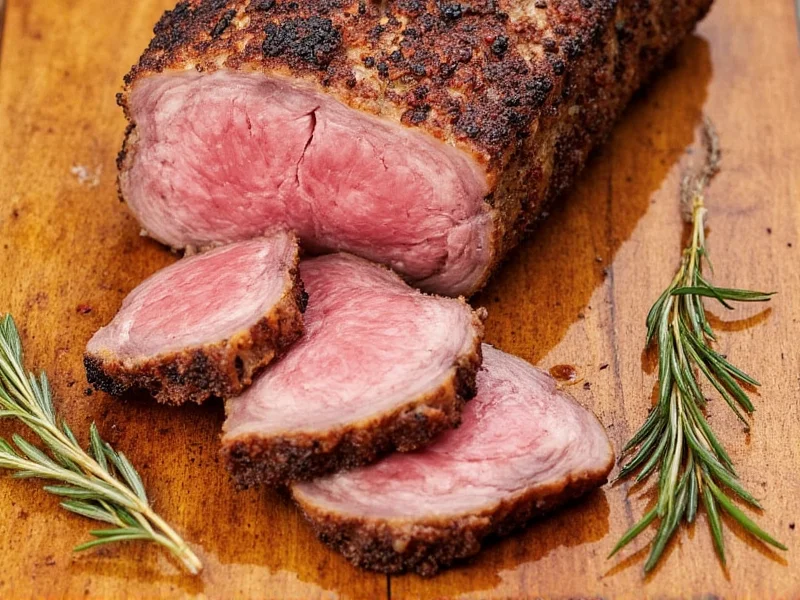When preparing lamb, selecting the right spices is crucial for enhancing its distinctive rich, slightly gamey flavor. Unlike milder meats, lamb has a robust character that can stand up to bold seasonings while also benefiting from complementary herbal notes. Understanding which spices work best with lamb involves considering both flavor chemistry and culinary traditions from regions where lamb has been a staple protein for centuries.
The Science Behind Spice and Lamb Pairing
Lamb's unique flavor profile comes from its higher fat content and specific fatty acids, particularly branched-chain fatty acids that create its characteristic taste. The right spices don't just mask this flavor—they interact with it chemically to create more complex, appealing taste experiences. Compounds in herbs like rosemary and thyme bind with lamb's fat molecules, releasing aromatic compounds that enhance the overall sensory experience.
Essential Spices for Perfect Lamb Dishes
Certain spices have stood the test of time across multiple culinary traditions for good reason—they create harmonious flavor combinations with lamb's distinctive profile. Here's a detailed breakdown of the most effective options:
| Spice/Herb | Flavor Profile | Best For | Usage Tip |
|---|---|---|---|
| Rosemary | Piney, woody, slightly peppery | Roasted leg of lamb, grilled chops | Use fresh sprigs for roasting; crush dried for rubs |
| Cumin | Earthy, warm, slightly smoky | Ground lamb dishes, kebabs, stews | Toast whole seeds before grinding for maximum flavor |
| Mint | Cool, fresh, slightly sweet | Lamb burgers, yogurt sauces, roasted loin | Fresh mint works best; dried loses potency quickly |
| Garlic | Pungent, savory, aromatic | Virtually all lamb preparations | Use whole cloves for roasting; minced for marinades |
| Coriander | Citrusy, floral, slightly sweet | Middle Eastern lamb dishes, curries | Combine with cumin for authentic flavor balance |
Regional Spice Traditions for Lamb
Different culinary traditions have developed distinctive spice combinations for lamb based on centuries of refinement. Understanding these regional approaches helps you create authentic dishes:
Mediterranean Approach
The Mediterranean region, particularly Greece and Southern France, favors fresh herb combinations. A classic traditional lamb seasoning combination includes equal parts rosemary, thyme, and oregano with generous garlic. This blend works exceptionally well for best spices for grilled lamb chops and slow-roasted shoulder. The acidity from lemon zest often included in these blends helps cut through lamb's richness.
Middle Eastern Mastery
Middle Eastern cuisines feature complex spice blends where cumin takes center stage. Baharat, a common blend, typically includes black pepper, cumin, cinnamon, and cloves. For authentic Middle Eastern spice blends for lamb, add cardamom and allspice to create depth. These blends work particularly well for ground lamb dishes and stuffed vegetables.
North African Influences
Ras el hanout, meaning "top of the shop," represents a premium spice blend that varies by region but typically includes 15-30 different spices. For spice rub for leg of lamb, a simplified version with cumin, coriander, ginger, and a touch of cayenne creates an aromatic crust when seared. North African preparations often include preserved lemons and olives to balance the spices.
Matching Spices to Specific Lamb Cuts
Not all lamb cuts benefit from the same spice treatments. The fat content, connective tissue, and cooking method should influence your which spices pair well with lamb shoulder decisions:
- Leg of lamb: Benefits from robust herbs like rosemary and thyme. Create a paste with olive oil, garlic, and chopped fresh herbs, then make small incisions in the meat to insert the mixture.
- Lamb chops: Work well with simpler preparations. A classic best spices for grilled lamb chops combination is just garlic, rosemary, salt, and pepper.
- Lamb shoulder: As a tougher cut requiring slow cooking, it handles more complex spice blends. Consider a spice rub for leg of lamb variation with cumin, coriander, and a touch of cinnamon.
- Ground lamb: Perfect for bold spice combinations. For authentic Middle Eastern spice blends for lamb, use equal parts cumin and coriander with a pinch of allspice.
Practical Application Tips
Knowing how to season lamb before cooking properly makes a significant difference in the final dish:
- Timing matters: For roasts, apply spice rubs at least 4 hours before cooking, preferably overnight. This allows flavors to penetrate beyond the surface.
- Salt separately: Add salt separately from other spices, as it behaves differently in the cooking process. Salt lamb at least 45 minutes before cooking to allow proper absorption.
- Fat is your friend: When creating rubs, include a small amount of olive oil or mustard to help spices adhere and interact with the meat's fat content.
- Balancing act: For classic lamb and herb combinations, remember that lamb's strong flavor can handle bold spices, but balance is key—avoid overwhelming the meat's natural taste.
Common Mistakes to Avoid
Even experienced cooks sometimes make errors when spices that enhance lamb flavor without overpowering it:
- Overpowering with strong spices: While lamb can handle bold flavors, too much cumin or cinnamon can dominate rather than complement.
- Using stale spices: Ground spices lose potency quickly. For the most vibrant traditional lamb seasoning combinations, use freshly ground whole spices when possible.
- Ignoring acid components: Lamb benefits from acidic elements like lemon juice or vinegar in marinades to balance richness.
- Misjudging cooking times: Some spices like rosemary can become bitter if cooked too long at high heat—add delicate herbs toward the end of cooking.











 浙公网安备
33010002000092号
浙公网安备
33010002000092号 浙B2-20120091-4
浙B2-20120091-4